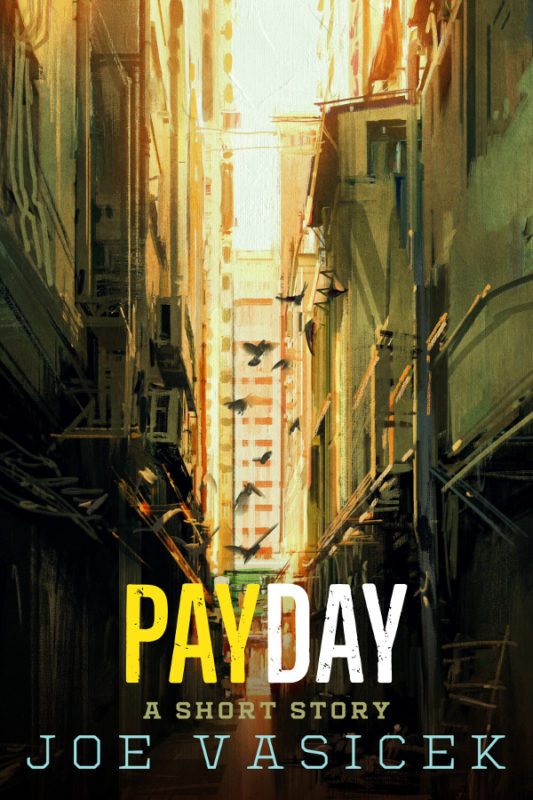In the next few days, I’m going to unpublish my short story “Payday.” It will still be available in the collection In Times Such As These, but I think it’s about time that its run as a free short story single should come to a close.
(For those of you who may not be familiar with how I do things around here, I typically publish my short stories first as free singles, then bring them down when I have enough to bundle into a collection. I’m actually going to take down a bunch of my short story singles over the next couple of weeks as I get ready to publish the second batch of stories that will appear in my fourth collection, Beyond World’s End, sometime this spring.)
I originally wrote “Payday” back in 2017, in response to an anthology call sponsored by the Economic Security Project, an NGO whose stated goal is to bring about a universal basic income. My story (which obviously did not win the contest) showcases all of the dangers of a UBI, such as inflation, supply chain shortages, and the breakdown of local businesses and communities.
I self-published the story in March of 2020, just as the pandemic was getting started. At the time, I had no idea that my warnings and predictions would soon become so prescient. The stimulus checks and unemployment benefits weren’t exactly a UBI, but they were regarded by many as a stepping stone to enacting that policy, and what did they lead to? Inflation, supply chain shortages, and the breakdown of local businesses and communities.
In January 2021, I unpublished “Payday” so as to include it in the collection In Times Such As These the following month, but then the other shoe of the pandemic began to drop. The threat of rampant inflation, which the authorities claimed would be “transitory,” convinced me that this story was too timely to take down, so I put it back up as a free short story single, where it remains until today.
At this point, however, the story is less of a prescient look at a troubling possible future than an obvious, and perhaps too “on the nose” (I tend to get that criticism a lot) extrapolation of our present situation. For that reason, I don’t think it’s worthwhile to keep it up any longer. It had a very good run, garnering more than 5,000 downloads, which isn’t enough to have a significant impact on the national discussion, but is still greater than the circulation of most science fiction magazines and podcasts (including, most likely, the original anthology call).
“Payday” will still be available in my collection In Times Such As These, and I do still plan to keep it on submission to the traditional magazines as a reprint, but the free short story single will come down in the next couple of days. If you haven’t already picked up a copy, now is the time to do it.

I found the following statement from a review for “Payday” to show just how oblivious/clueless some people are: “People on UBI are not disincentivized to work, and there is no evidence that runaway inflation would be the result of UBI.”
All you have to do is see how many people have chosen not to work because they are getting paid extra for unemployment, and the rampant inflation in the U.S. due to covid payments, to know how silly that statement is.
The first time I heard of UBI was when I read the early Honor Harrington novels by David Weber, back in the ’90s. I see the People’s Republic of Haven as what the current socialist democrats want for America.
Yeah, when I read the first three Honorverse books, I thought the Republic of Haven was supposed to be a stand-in for the Soviet Union. Now, it looks almost prophetic when you consider how far we’ve gone…
I originally thought it was also supposed to be the USSR, but as I read more, I realized it was based on what France had after their revolution. For example, Robespierre was an actual person involved in the French revolution, and a member of the Committee of Public Safety.
BTW, there are only seven stories listed in this eight story series. https://www.amazon.com/dp/B08V5QKPN7?binding=kindle_edition&ref=dbs_dp_rwt_sb_pc_tukn
Thanks for pointing that out. I do have a short story that isn’t on Amazon due to their woke censorship policies, but I think that misnomer comes from another short story that I recently took down. I’ll see if I can fix it.